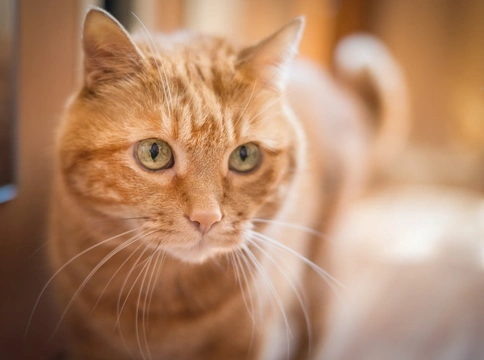
What causes a heart murmur in the cat?
Learning from the vet that your cat has a heart murmur can be very alarming for the owner, as of course any heart problem can be potentially serious with wide ranging implications that can affect your cat’s quality of life and ultimate lifespan.
While a heart murmur is a potentially serious condition that can lead to other problems and so, should not be overlooked, heart murmurs can range from the minor to the serious, but even for serious cases, treatments and some surgical options are available to help with the problem.
One common question among cat owners upon first diagnosis, is what caused the heart murmur in the first place, and the answers to this question can be multiple. In this article, we will cover the main causes of heart murmur in the cat in more detail. Read on to learn more.
What is a heart murmur?
A heart murmur is an abnormal sound produced by the heart when blood flows across the heart’s valves, and which can be detected by listening to the heart with a stethoscope.
Heart murmurs are further divided up into classifications depending on where in the heart the murmur is the loudest, how often it occurs, and the shape of the murmur and how this changes over time.
The intensity of the murmur refers to the severity of the condition, and ranges from level one at the most minor end of the spectrum, which is hard to detect and possibly, not even present at all times, up to a level six, which is the loudest and most profound murmur.
The different potential causes of feline heart murmur
There are at least ten different causes of heart murmurs in the cat, and we will look at the most common of these below.
Hereditary defects
If the cat is born with a hereditary defect in the heart wall or the valves of the heart, this can cause a murmur that is present at birth. In some cases, affected kittens will actually outgrow the murmur as they reach maturity and the heart too grows to full functionality, and this condition is fairly common and rarely impairs the cat’s heart function in later life.
Anaemia
Severe anaemia such as can be caused by serious flea or tick infestations can affect the healthy functioning of the heart, leading to a murmur. Generally, correcting the underlying issue and boosting the cat’s immune system with nutritional supplements can help to treat this.
Pulmonic stenosis
Some heart murmurs can be caused by a narrowing of the pulmonary artery of the heart where the right ventricle exits it, which is known as pulmonic stenosis.
Aortic stenosis
A very similar condition called aortic stenosis can happen if the narrowing itself occurs in the outflow of the aorta, which is called aortic stenosis.
Ventricular septal defect
A hole in the wall of the chambers of the heart is known as ventricular septal defect, and can cause a murmur if the hole is small enough to cause turbulence within the blood. However, the murmur may be absent altogether if the hole is larger, as it is turbulence in the blood around the hole that leads to the murmuring sound.
Mitral valve dysplasia
Mitral valve dysplasia is a condition in which a leaky heart valve causes turbulence in the blood from its reflux, leading to another type of murmur.
Patent ductus arteriosus
Patent ductus arteriosus occurs when the duct present in the heart of the foetal cat does not close up as it should after birth, which leads to a murmur due to the shunt caused as the blood moves from left to right.
Tetralogy of Fallot
Tetralogy of Fallot is an arterial defect that affects more than one part of the heart in combination, leading to pulmonic stenosis and the associated murmur.
Hyperthyroidism
Hyperthyroidism can also lead to heart murmurs in the cat, and is one of the main causes of the condition. Generally, getting the thyroid’s excessive hormone production under control with medication will treat the heart murmur caused by it as well.
Cardiomyopathy
Cardiomyopathy is a disease of the heart that leads to the muscles of the heart itself changing shape, leading to the heart having to work harder to compensate for this. This too can lead to a murmur, and medications to boost the elasticity of the muscles of the heart can often get the condition under control.
As can be seen, the causes of heart murmurs in cats can be varied, and so the treatment or management options for a murmur will depend on the area of the heart affected, and what can be done to resolve the issue. If an underlying condition is causing the problem, resolving this will often correct the issue, but in some cases, heart surgery or supportive medications may be required as well.



